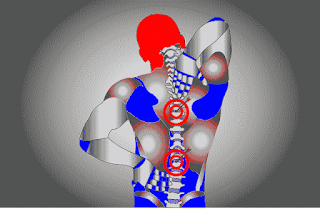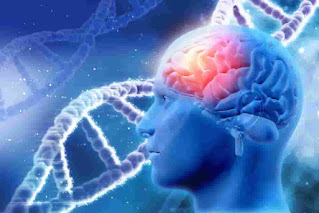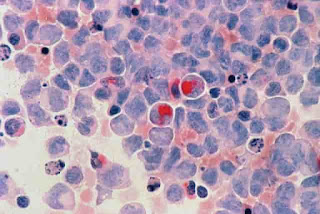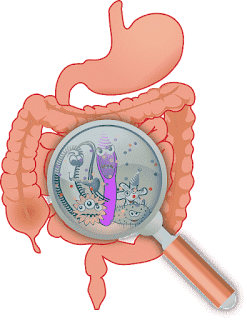pain is essential for our existence. if there was no pain to stop us from harming ourselves then we'd probably have lost most of our bodies already. thanks to the curious brains of our show ever. this same useful sensation can turn into the biggest hurdle in the path of your life. a nightmare does't seem far away. In this article we're going to reveal the truth behind chronic pain, what are its causes and how can you get rid of it.
what is chronic pain
if pain persists longer than
three months then it is termed chronic pain. chronic pain can make it difficult
for you to perform daily activities and can take the enjoyment out of life. the
food that once tasted great starts to feel rather stale and hanging out with friends
that was once enjoyable, starts to feel like an unnecessary burden.
the constant pain can also induce mental disorders like depression and
anxiety. which can further aggravate the situation. so it is important to not
take chronic pain lightly and get on with the treatment as soon as possible. to
treat chronic pain the first to do is to identify its root cause, there can be many
possible causes that can lead to the development of chronic pain.
Let's look at the seven possible causes of chronic pain
No 1. Nerve damage
if you're feeling a shooting burning or stabbing sensation with the slightest of touches then it could be due to nerve damage. nerves are responsible for sending and receiving signals between the brain and the body parts. the same goes for the pain signals, when a heavy object drops on your foot the pain signals travel from the foot to the spinal cord and from there to the brain.
however when these very nerves get damaged then you're in for a world of
pain. severe pain that gets triggered with the slightest of touches and sometimes
even without any touch. this kind of pain is known as neuropathic pain and you
do not want to experience it. hence it is
fairly common cause of chronic pain.
there are so many ways that nerves could get damaged. it might be
due to a surgery or trauma. maybe a viral infection got to your nerves or due to
some neurological conditions like multiple sclerosis or even diabetes can also
lead to this kind of pain. post-traumatic pain is also often associated with
nerve damage but there's a lot more to it than that.
No 2. Post-traumatic pain
everyone knows how excruciatingly painful a sprained ankle is, but the good
thing is that the ankle heals quickly in a week or so in most cases and takes
the pain along with it. what if that ankle pain was to persist even after the
apparent recovery from the injury. what's even the point of treatment then
post-traumatic pain is also sometimes called complex regional pain syndrome or
CRPS. causalgia or reflex sympathetic dystrophy syndrome or RSD. so many names
for one condition the reason is that the cause behind the pain is not always
clear.
however most of the time this condition is associated with faulty
communication between the central and peripheral nerve systems owing to nerve
damage. the name for this is causalgia. in causalgia the feeling of pain is
usually accompanied by inflammation and numbness. the intensity of pain during
the original traumatic event the treatment and care received after the trauma
duration of treatment, a history of alcoholism and being of 65 years or older. all of these factors can contribute
to the development of post-traumatic pain.
No 3. Cancer
chronic pain could also be a signal of cancer if you're feeling a dull achy sharp or burning pain, but can't seem to put a finger on any particular cause then there are high chances that it might be due to cancer. cancer can lead to chronic pain in several ways. first off the presence of cancer itself can cause pain, secondly it may be because of growing cancer pressing against the nerves bones and tissue and finally the tumour can also release certain chemicals that too can trigger pain to get rid of the pain due to cancer .
you'd go for its
treatment, but even chemotherapy and radiation
therapy for cancer treatment can cause pain. while the treatment of the root
cause may add to the pain. there are still several ways to make it more bearable, while the treatment continues. your first option is to go for over-the-counter
pain relievers like aspirin and
acetaminophen.
if the pain is more severe then you could also opt for derived medicines.
however you'll have to provide a prescription to get your hands on one of those.
another option for unbearable pain is to use a nerve blocking procedure. where
a numbing medicine is injected into or around a nerve to stop the pain signals
from traveling to the brain.
No 4. Post-surgical pain
experiencing pain after surgical treatment is normal what isn't normal
is the pain that persists longer than three to six months after surgery.
surgery is one of the most frequently reported causes of chronic pain a survey
of 5000 people suffering from chronic pain. found that 22.5 percent of the people had developed chronic
pain after surgical treatment.
it has been estimated that around 10 to 50 percent of the people who
undergo surgery. go on to develop chronic pain after the procedure. why is that ? there are a lot of factors that can lead to chronic pain after the surgery. pre-operative
pain lasting more than one month. repeat surgery being a female intra operative
nerve injury and psychological factors like pre and post-operative anxiety all
can contribute to the development of post-surgical pain.
No 5. Psychogenic pain
it is a well-known fact that your mental condition can prolong or
shorten the symptoms of a disease. however, you might be surprised to know that
the beliefs can also trigger symptoms of a disease that isn't there, pain
attributed to psychological factors is commonly termed psychogenic pain.
this kind of pain is living proof of how beliefs fears and strong
emotions can manifest in the form of physical phenomena headache, stomach pain
and back pain are the most common types of psychogenic pain. it may occur due
to mental disorders like depression. but most commonly it is associated with an
emotional event like social rejection, grief and a broken heart. people who suffer
from this kind of pain are often subjected to criticism by the doctor and family
alike. since there's no apparent reason for the pain.
however, it should be realized the
pain that stems from psychological sources is as real as any other pain. there
is often no physical cause of this pain. so it is a lot harder to treat just
like belief and mental condition can induce. this kind of pain an improvement
in the emotional state and beliefs of the patient are often enough to get rid
of the pain.
No 6. fibromyalgia sharp pain
throughout the whole body is painful to even imagine let alone to experience if you are one of the unfortunate souls who is experiencing this then it is due to a condition called fibromyalgia. along with pain. patients also commonly report sleep problems, depression, headaches, memory problems, fatigue and mental distress.
some of the risk factors of fibromyalgia include older age, lupus or
rheumatoid arthritis, post-traumatic stress disorder. being a woman since women
are twice as likely to be afflicted with this repetitive injuries and viral
infections to name a few while the causes of this uncomfortable condition are
still not known. there are ways to manage and treat it usually the doctors
recommend taking pain relievers doing aerobics and strengthening exercises
using stress management techniques like yoga and meditation and developing good
sleep habits.
No 7. Inflammatory bowel disease
if the chronic pain is concentrated right around the abdomen then it
might be due to inflammatory bowel disease. there are two main types of IBD. the
first one is ulcerative colitis which involves inflammation along the
superficial lining of the large intestine and crohn's disease. which is
inflammation in any part of the gi tract common symptoms associated with this
painful condition include diarrhea, abdominal pain, weight loss, bloody stools
and fatigue.
how to treat chronic pain?
we have
looked at the possible causes of chronic pain as you must have seen that there
can be many reasons that could induce chronic pain. although treating the root
cause of the pain is the best strategy along with it some common strategies can
also help to manage and treat chronic pain.






